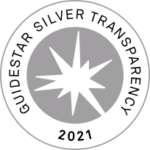Welcome to the first in an 8-part series titled Frosting on the Cakes: Non-Discrimination Laws, First Amendment in the Mix at Supreme Court (Masterpiece Cakeshop, Ltd. v. Colorado Civil Rights Commission, No. 16-111). Through the summer, we will be joined by guest author Chad M. Eggspuehler to dig into the dynamics of this case, what you need to know to follow it through the process, and why it is so important. Chad is a member of the Tucker Ellis Appellate & Legal Issues Group. Before joining Tucker Ellis, he clerked for federal trial and appellate judges in New Jersey and Ohio, including the Honorable Deborah L. Cook, Circuit Judge for the U.S. Court of Appeals for the Sixth Circuit. All views expressed here are those of the author. Chad can be reached at chad.eggspuehler@tuckerellis.com.
>> back (you are at the first post)
>> next Cutting Into this Cake: The Recipe for a Supreme Court Case
I. Introduction
Two years ago, the end of the Supreme Court’s term brought wedding bell bliss—and a cameo rainbow projection at the White House—as supporters of LGBT rights celebrated the Court’s landmark decision recognizing a constitutional right to marriage equality in Obergefell v. Hodges. Fast-forward to this week, and much has changed. New President, new Justice, and a pair of Supreme Court decisions painting an uncertain picture of the future of LGBT rights. Suffice to say, it may be a while before we see rainbows at the White House again.
There was some good news tempered by a strong dissent on the last opinion day of the Court’s term.
There was some good news tempered by a strong dissent on the last opinion day of the Court’s term. In Pavan v. Smith, the Court reaffirmed Obergefell in summarily reversing an Arkansas Supreme Court decision that rejected married same-sex couples’ challenges to the state’s discriminatory birth certificate law. Notably, it appears that Chief Justice Roberts joined the six-Justice Pavan majority in applying Obergefell, despite his scathing dissent in that case.
The Court’s newest member, Justice Neil Gorsuch, penned the dissent and was joined by Justices Thomas and Alito. Though couched as an objection to the Court’s use of the summary reversal procedure, the Pavan dissent found it “very hard to see what is wrong” with the state’s “rational reasons . . . for a biology based birth registration regime, reasons that in no way offend Obergefell.” Never mind that the challenged statutory provision, Ark. Code § 20–18–401(f)(1), employed a non-biological presumption in favor of husbands.
While Justice Gorsuch’s Pavan dissent signals ongoing resistance to broad application of Obergefell, the Court’s surprise grant of certiorari in Masterpiece Cakeshop, Ltd. v. Colorado Civil Rights Commission portends the possible erosion of LGBT legal protections. The case pits a devout Christian cake artist against Colorado’s antidiscrimination law and the same-sex couple to whom he refused to sell a wedding cake. Many expected this case to fail as the cert petition languished in the “relist” loop, having been set for conference votes no fewer than 18 times between January and June. (See Law360 article, here.) But on the last day of the term, the Court had four votes to hear the case, leaving many seasoned Court observers to speculate whether Gorsuch cast the deciding vote to hear the case.
It is no answer to say that the couple should simply buy their cake elsewhere (they did), as the product at issue is largely beside the point.
As an appellate attorney who has clerked for federal judges who routinely receive challenging constitutional cases—and who dabbles in cake-baking from time to time—I am delighted to have the opportunity to cover Masterpiece Cakeshop in this blog series for Equality Ohio. Throughout the summer, I will examine the procedural history of the case, the key First Amendment precedents in play, and the competing influences of the Obergefell and religious liberty lines of cases.
The stakes could not be any higher.
Like other cases involving constitutional challenges to antidiscrimination public accommodations laws, Masterpiece Cakeshop must determine whether an individual has a First Amendment right to opt out of selling goods or providing services to LGBT individuals—a protected class in Colorado. A baker’s veto, so to speak. It is no answer to say that the couple should simply buy their cake elsewhere (they did), as the product at issue is largely beside the point. The Court will grapple with the expressive qualities of wedding cakes, whether certain religious viewpoints receive heightened First Amendment protection, and the extent of a state’s ability to protect minority groups from discrimination. It is a peculiar confluence of issues that can flip traditional political talking points like states’ rights and individual liberty and thus requires careful analysis of constitutional limiting principles.
Add to that rampant speculation about the possible retirement of the octogenarian Justice, Anthony Kennedy, who has authored the most significant opinions on LGBT rights in our country’s history—Romer v. Evans (1996), Lawrence v. Texas (2003), United States v. Windsor (2013), and Obergefell (2015)—and the forecast for LGBT rights at the Supreme Court is anything but clear.
The stakes could not be any higher. Masterpiece Cakeshop will either vindicate states’ abilities to protect LGBT citizens and other minority groups from discrimination in the marketplace, or it will recognize a constitutional right to deny public accommodations on account of personal religious views.
 Chad M. Eggspuehler is a member of the Tucker Ellis Appellate & Legal Issues Group. Before joining Tucker Ellis, he clerked for federal trial and appellate judges in New Jersey and Ohio, including the Honorable Deborah L. Cook, Circuit Judge for the U.S. Court of Appeals for the Sixth Circuit. All views expressed here are those of the author. Chad can be reached at chad.eggspuehler@tuckerellis.com.
Chad M. Eggspuehler is a member of the Tucker Ellis Appellate & Legal Issues Group. Before joining Tucker Ellis, he clerked for federal trial and appellate judges in New Jersey and Ohio, including the Honorable Deborah L. Cook, Circuit Judge for the U.S. Court of Appeals for the Sixth Circuit. All views expressed here are those of the author. Chad can be reached at chad.eggspuehler@tuckerellis.com.



 @
@